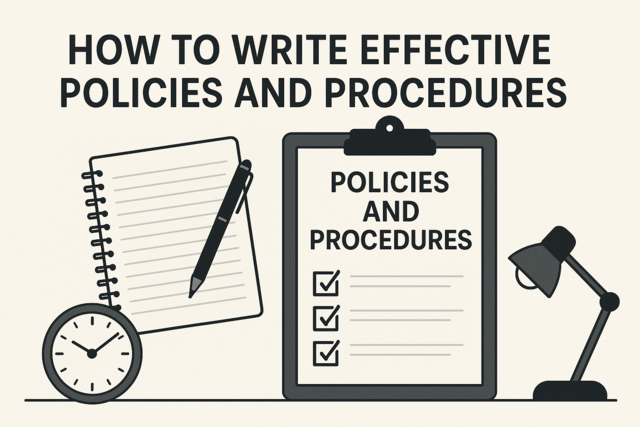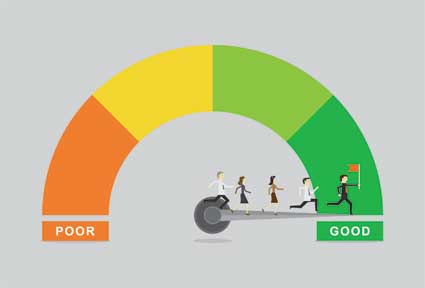SEO is a term you see a lot, especially if you are a freelance writer, or if you are contemplating becoming a freelance writer. SEO stands for Search Engine Optimization, and is, simply put, the way to get your content found on the Web. When advertisers, bloggers, or marketers of any kind want customers, or those simply surfing the Internet, to find their copy and read it, they need it optimized for search engines.
When your copy is SEO, it is visible in Web searches, no matter if your reader is searching via Bing, Google, or Epic Search, among others. Additionally, having your content correctly optimized gets you higher results on Google or any other search engine. (Did you know there are actually more than 100 search engines out there?!?) As everyone can probably confirm, when we do a Google search, we tend to choose results from the top of the page, and we rarely go beyond the first page. (Of course, there are always exceptions to the rule.)
If your content is not correctly optimized, it can end up on at the bottom of the fifth page -- or worse. When you are trying to sell something, having your website buried that far in the search results can kill your business.
When I started as a freelancer, my very first assignment, (how I ever landed the job is beyond me), included instructions that asked me to make sure the keyword optimization was 35x2 (Okay, not really, but you get it. It could have asked me to optimize the keywords to infinity and beyond for all I knew about SEO).
I had no idea what SEO even stood for, let alone knew how to do it! But there was no way I could ask the client to explain, and confess to the fact that I had no idea what I was doing, because, let's face it, right now, freelance writers are a dime a dozen, and there are always freelancers lining up right behind you who can do the work better, and at a lower price.
So, I buckled down, I started doing my research, and not only did I do the work to the client's liking, he awarded me a long-term contract. Hurray!
In this article, I will equip you with the skills to take on those SEO writing jobs, so you will not have to worry over a client's instructions, or wonder what language they are in. You will speak SEO!
We will focus on SEO and keyword density, (Don't worry if you do not understand that yet, we will get there!), as well as Black Hat versus White Hat SEO practices. Again, this is not something you should know yet, but suffice it to say, that just like in an old Western movie, the White Hat is the good guy here, and the Black Hat should be avoided.
While you now know the definition of SEO, what we have not yet discussed is how to put SEO into practice. SEO copywriting uses specific keywords, which will be provided by your client. Or, if you are writing SEO for your own purposes, they will be keywords you come up with to attract traffic or customers to your site.
When we search for anything online, using whatever search engine we choose, we use keywords. Even if we type in a sentence as our search query, Google or Bing (or whatever search engine you are using) picks out keywords from our search criteria and then looks for matches online.
Those matches come from tags located in a page's HTML code. These are located in the page's head section. When you write your copy, you will use these tags as keywords. When clients post the copy, they will use those tags, posting them in the HTML code (or, if you are writing for your personal website, then you will post those tags).
These keywords are critical, and are what Search Engine Optimization is all about. The keywords are what improve search engine rankings, and are what your clients use as part of their Internet marketing strategy. This is what they will be paying you for. The better you write their copy, the higher their sites will show up in searches.
Organic
When you begin to write your copy, remember to write 'organic' SEO copy. Here, 'organic' means that your keywords are placed naturally, rather than forced. Search engines can actually tell if the placement of the words is natural, or organic, and if the copy is forced, the page will not show up high in the search engine result pages (also known as "SERPs").
I referred to "White Hat SEO" earlier, and this organic keyword placement is one of those practices. Forced keyword placement, which does not sound natural, which does not read naturally, is a "Black Hat SEO" practice. We will get more into this in the next lesson, but for now, remember that organic keyword placement is simple, natural-sounding, natural-flowing copy.
Organic Keyword Choices
If you are writing SEO copy for your own pages, remember to choose keywords that sound natural. Choose keywords that are relevant to your particular page. If you are writing for a client, chances are, they have already chosen keywords for you to write around. If not, they may ask you for help. Just know that the correct, organic, keywords are those that sound natural within the piece, and are those that make sense with the topic at hand.
Did You Know?
Did you know that search engines typically give more regard to the first 200 words of an article? This means that you really need to make sure that the keywords are used, and used naturally, at the beginning of your piece.
You will also then use them proportionally through the rest of the article; but you must remember to use the keywords in the first few sentences. Typically, you will want to use your main keyword in the first sentence of the piece, and then at least one secondary keyword in the second sentence -- unless otherwise directed by your client.
The keyword density is simply how many times you use the keyword in proportion to the total number of words in your article. Usually, your client will tell you what keyword density he or she is looking for. Typically, that number is 1.5 to 2.5 percent
Titles, Headings and Anchor Text
When you are writing your SEO copy, you should also take into consideration the use of the keywords in your title, your headings and your anchor text. The anchor text is any type of link that your client specifies, or, if you are writing SEO for yourself, any type of link that you will be using on your blog/website.
These are all great organic (White Hat) ways to help improve the search engine ranking.
When you use the keywords correctly within your title and headings, it serves to give more emphasis to them, and it helps to develop an overall theme for the piece.
When writing SEO, headings and subheads are important. They should be utilized as short descriptions that help break the text up. The headings and subheads should be no more than five words and should always be a quick description of the subject matter to follow.
When you incorporate your keywords into these headings and subheads, it helps to give priority to those keywords, making them more relevant.
This is the same for any keywords you use in your anchor text. When those keywords are highlighted, it provides an additional link between the keywords and the an external site, providing readers with more information.
Additionally, any reader who is perusing your copy will be drawn to that anchor text, and the keywords in it. This will enhance their experience, and help them make note of the theme (both of the site and the article). And within the Search Engine Ranking, those keywords will help enhance the idea that this keyword is important.
Going back, briefly, to keyword density, it is important to note that keywords can be overused. As I said before, clients will typically ask that keywords make up 1.5 to 2.5 percent of the copy. If, by chance, you overdo it, and make the keywords, oh, 50 percent of the copy (I am exaggerating simply to make a point), the search engine will notice this, and it will hurt the client's (or your) ranking.
Drowning your copy in keywords is a practice that is frowned upon by search engines and can actually result in penalization; (it is a Black Hat practice). So, as you write, remember to use the keywords organically, only as they are relevant to the subject matter at hand, and only in a way that will make sense to the reader.
Example
Here is an example of an SEO article. The topic was "Low Carb Diets," and it was targeted toward anyone searching about different types of low carb diets. The main keyword phrase was "low carb" and as you read, you will see it was used organically throughout:
Low Carb Dieting: Does It Work?
By now, you have definitely heard about low carb diets. These diets have been the "in" way to eat for years now, and don't seem to be waning in popularity. Why is that? And is this a diet that will work for you?
A low carbohydrate diet is one that has you limiting the amount of carbohydrates you eat. This means you will eschew breads, grains, rice, starchy vegetables and fruit. Some, like The South Beach Diet, allow you to add some carbs back slowly. On these, you will add back some of your grains and fruits, but will still steer clear of bread, potatoes, rice, and cereal.
A low carb diet won't allow you to go hungry though, since it encourages dieters to eat more proteins and fats. Many of these plans allow you to eat as much protein and "good" fat as you'd like. This means you can have olive oil, fish, steak, cheese, and so forth. However, you will still want to limit full-fat dairy.
Some other versions of the low carb diet are The Zone, Atkins, and the new 4-Hour Body Diet. These are nearly "no-carb" diets, though, because you don't add back carbs as you go along.
But do they work? Yes, they do! And that's why they are so popular. Understand, though, that you will lose weight on these plans, but if you stop following the diet, you will gain the weight back. In the first few days you will lose a good amount of water weight, but after that, you'll be losing fat.
Why does a low carb diet cause weight loss in the body? Well, the reasons are simple. Your body's main source of energy is the carbohydrate. When the body digests carbs, it turns them into sugar -- which is obviously not a great thing. (Usually, any time we are talking about sugar and the body, you know something bad is coming.) This sugar then spikes the blood sugar level. A spike in insulin levels will push blood sugar into the body's cells, and that gives us energy. Sounds like a good thing, but if there is additional sugar left over after this process, it is stored in the liver and muscles as glycogen
If you follow a low carbohydrate diet you will automatically and instantly lower the insulin levels in your body. This will then prevent fat breakdown. It also allows sugar to be used only for energy rather than be stored where we do not want it. The body's lower insulin levels will actually force your body to use stored fats for energy when it runs out of sugar. Guess what? That means less fat on your body -- and lower body fat percentages. Voila, this is why the low carb diets work!
So now you're wondering what carbohydrates are, and which ones you need to cut from your diet. Well, there are many places that carbs can be found. They are found in grains, fruits, dairy, vegetables, and beans, or legumes. They are also, obviously, found in processed foods and sugary sweets. Definitely cut out the latter -- the processed foods and sweets. Keep the beans and legumes, the vegetables, but get rid of starches like potatoes and rice. Breads and cereals are also a no-no on the diet, and most low carb diets say no fruit at all -- but check with your doctor before cutting out this food group.
A low carb diet plan consists heavily of meats, eggs, fish, vegetables, low fat dairy, and "healthy" fats, like olive oil and peanut butter. Coconut oil is also a great fat to add to the diet.
A low carbohydrate diet will work, but make sure that you are still eating enough calories. If you cut too many calories, your body will think it's starving and start to hold onto body fat, which is something you don't want! Men need at least 2,200 calories per day and women need at least 1,800 calories per day. If you are very active, or pregnant, you will need even more -- and should consult your doctor. Anyone beginning a new dietary plan should consult a doctor or registered dietitian before they start.
The reason the article works as an SEO piece is that it meets the client's expectations; it shows up well for SEO. The keywords and phrases were included (low carb, low carb diets, carbs, The Zone, Atkins) and they were included at the required density (which we will discuss in the next lessons).
The blog article was designed to draw readers who were interested in any or all of these low carb diet plans to the client's website, and then the client could include hyperlinks to affiliate sites in order to make money and sell a product. We will talk more about affiliate sites later in the course, when we discuss blog posts and SEO.























